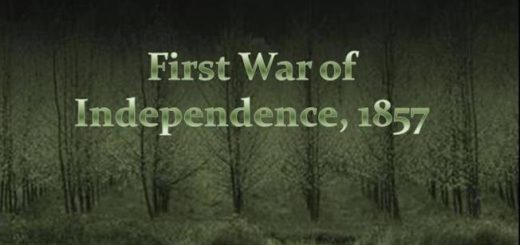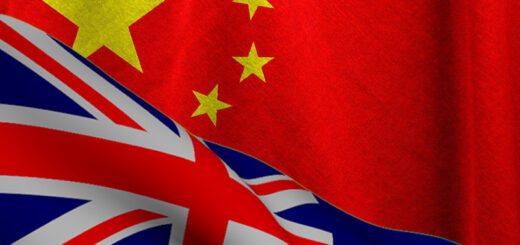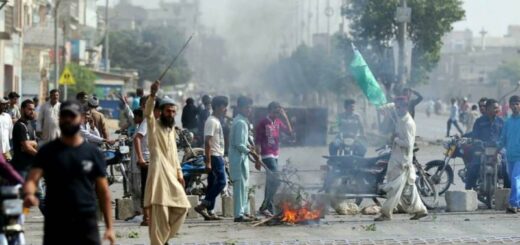Concept of “U” Theory and CPEC under Pakistan’s New Leadership
Otto Schamer said the complexities of the change processes in societies are very challenging. As it doesn’t represent and justify reality in an abridged but in a superficial way. The change and innovation happened not overnight but it takes time. Change is tough since you are likely to experience pressures from your backdrops.
But Otto said the difference of interests may cause conflicts. You have to think of something that no-one has ever come up with. The Otto’s analogy describes the prevalent phenomena of Pakistan’s political arena where every other politician fantasizes adequately to tackle the matters. He summarized his analogies in seven different steps that are listening, observing, sensing and presenting, cry stalling, shaping and performing. When going up again in the U-turn, then what happens? You come out with new notions, and configurations in order to meet with the unpredictable world. In these scenarios, most of the changes happen that is why Theory U is the truthful change. It helps as a leader, as a trained professional and as a person. In the most recent waves of the election, we saw sportsman turned into the statesman. He won the hearts of many and transformed the thoughts and ideologies of the common people. He introduced the manifesto of Naya Pakistan. Apart from all this, the new elected PM defines the global overview of Pakistan, he embraces openness and engagement. Undoubtedly, many challenges are on the way. But here, the focus is on CPEC.
Let’s review the rhetoric stances on CPEC. Ever since the announcement of CPEC, it has become the most famous debate for politicians, media person’s even general masses. The majority of the Pakistani presumes multibillion project as an essential pecuniary affluence. The China-Pakistan Economic Corridor significantly built regional connectivity and industrial cooperation. Hence, CPEC is an important loop for both the countries, the emergence and development of CPEC, is an unprecedented move which redefines the very perception of the country, carrying the potential to eliminate conflicts around the region through an economy impulse.
In order to apprehend CPEC predicament and its futuristic approach in Pakistan, it is important to understand the history of both the countries that reveals, friendly and cordial relations, and strong diplomatic ties, began in 1950. Unfortunately, the political culture and quest for democratic consolidation caused a blatant situation in Pakistan. The political leaders and parties are prone to corruption that boosted miss-governance. The unexpected changes in government are one of the critical aspects which leads the country into a chaotic situation. The complex political culture of Pakistan impacts on the national and international development policies but at the same time, the country went through the difficult time. In spite of the unpredictable political culture, the international agreements have always received privileged. The different political ideologies and discursion between provincial governments are on one side but the firm “Sino-Pakistan cordial relations” are on the other side. Whatever the political tensions in Pakistan or in China none of these two countries ever had impacted deleterious that is why they are called “all-weather friends”. Above all, the relationships between both countries are strong even the changes in leadership have never caused any obstruction. But recently, many questions raised about CPEC and post-election dilemma even many Chinese are concerned about the future trajectory of CPEC. The prospects of the CPEC, a flagship of China’s Belt and Road initiative, under the next government, has elicited extensive conjecture within West says a report published in a Chinese newspaper, the Global Times that says “China’s debt traps”. Apart from these conjectures, the Chinese are expecting high from the newly elected government. Under CPEC initiative, the concern is obvious where do the strategies Stand? What can be the further policies? To answer these questions one needs to look at how the major political party perceives CPEC model? After the disqualification of ex-prime minister in July, China reassured that CPEC will not be affected by the internal chaotic situation in Pakistan. On the other hand, the concern is dwelling on, Pakistan’s new leader who emphasized the importance of CPEC as it will improve the economic affluence of the country.
At this time, the main concern is Mr. Khan’s policies and his standpoint after winning which he delivered many times but in the following manner, “his party did not have anything against the CPEC but with the way, the federal government was managing it”.In 2015, Mr. Khan made the contentious state on the visit of President Xi Jinping, in Pakistan. The party also alleged that CPEC is just a commercial loan to Pakistan. All in all the policies of PTI towards CPEC kept fluctuating. There have been many ups and downs that may damage the country’s image. The party has its interminable ideologies which are changing with the passage of time. Albeit, Mr. Khan has taken different stances on the CPEC.
In 2015, his first reaction came from that was on the shortest route of CPEC between Kashgar and Gwadar, then he stressed upon on the western route. Many time he fostered, an eastern route for the CPEC might arise animosity between provinces so “better route” should be found out. PTI raised many questions against the western route, he stressed upon the completion of a western route that is only possible after building routes from KP and Baluchistan. The party even criticized how the western route cannot be built without passing through Punjab. Similarly, in many other forums, the PTI adherents started calling the CPEC as the “China-Punjab Economic Corridor”. Similar type of tweets and messages have seen from PTI side that was against CPEC project. But after the election his stances have reversed they will obviously change from time to time. Mr. Khan opposed than supported once again and then reverted back and then inclined to support once again in 2018 a day before an election. He has given some soft statements and steered the possible friendship between the two countries. Well, this is politics, today’s hero can be tomorrow’s villain. Those politicians who don’t ‘adapt’ new states are not good politicians. In 3rd world countries, they take ‘U-Turns’ but even in ‘established democracies’ like America politicians do, subtly, take U-Turns. Mahatir Muhammad believed
“To be a great leader, one needs to have good strategies, knowledgeable and able to predict the future.”
So, the perspectives and strategies of the world are changing, our region is changing, and Pakistan, for sure is changing and the U-turn perspectives are dominating..!
- Concept of “U” Theory and CPEC under Pakistan’s New Leadership - August 25, 2018
- Heterodoxy in Conflict Resolution“Vanni” in Pakistan - March 23, 2018
- Valentine day! Should be an Issue or a Non-Issue? - February 12, 2018


